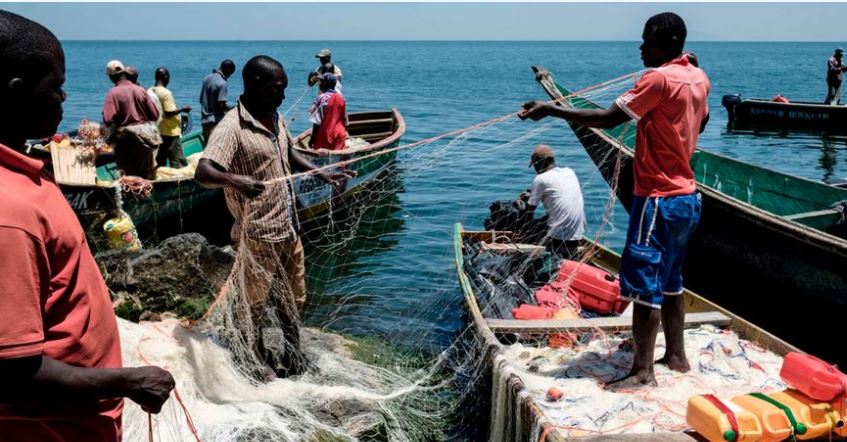
 Fishermen prepare their nets to fish/SCREENGRAB
Fishermen prepare their nets to fish/SCREENGRAB
Governments and maritime agencies from six Southwest Indian Ocean states will convene to adopt a joint action agenda against illegal, unreported, and unregulated (IUU) fishing.
The Blue Voices Roundtable, convened under the Jahazi Project by Ascending Africa, is expected to tighten enforcement, harmonise laws, and boost collaboration in a region losing millions annually to rogue fishing vessels.
Governments and maritime agencies from Tanzania, Kenya, Mozambique, Comoros, Madagascar and Mauritius will meet next week for the Blue Voices Roundtable to strengthen enforcement, share data, and close legal loopholes that allow rogue vessels to evade prosecution.
The meeting will be convened in Dar es Salaam on September 1, 2025, under the Jahazi Project by Ascending Africa.
A WWF assessment of shrimp and tuna fisheries in the region estimates that as much as about Sh18.44 billion (US$142.8 million) in potential income is lost every year to IUU fishing, excluding other species and downstream impacts on jobs and public revenue.
Those losses, the assessment warns, undermine an ocean economy that many African policymakers see as a growth engine.
The African Union’s Blue Economy Strategy values current activity at roughly Sh38.24 trillion (US$296 billion), projecting growth to reach Sh52.33 trillion (US$405 billion) by 2030 and Sh74.42 trillion (US$576 billion) by 2063, but only if governance keeps pace with investment.
Michael Mallya, spokesperson for The Jahazi Project, stressed that the security dimension is equally stark. Along Somalia’s coast, where industrial fleets target tuna, IUU fishing is estimated to cost about Sh38.76 billion (US$300 million) annually, often linked to transnational crime networks and labour abuses at sea.
Organisers say the Dar meeting will focus on practical steps: technology-enabled monitoring (integrating AIS/VMS feeds with coastal intelligence), joint patrols and evidence sharing, and legal harmonisation to prevent offenders from “jurisdiction-shopping” between ports.
“The conversation has moved from concepts to operations,” Mallya said in a statement. “The Roundtable is about regional collaboration, stronger enforcement, and solutions we can implement now to protect coastal livelihoods.”
Beyond enforcement, he said, the forum will weigh how to centre coastal communities, including small-scale fishers who supply local markets and are most exposed to depleted stocks.
WWF’s recent regional baselines also stressed that credible control at sea must be paired with community-led conservation, transparent licensing, and traceability from net to market.
Mallya noted, however, that financing remains the toughest hurdle. “Satellites, fuel, forensics and prosecutions are expensive; budgets for sea patrols and fisheries intelligence are often late and thin.
Development lenders have backed blue-economy infrastructure and coastal resilience, but law-enforcement line items tend to lag,” he said.
Kenya’s Coast Guard Service, established under the 2018 Act of Parliament, illustrates the statutory tools regional governments are creating, but funding gaps still constrain full-scale operations. Officials warn that without predictable financing, even the best legal reforms will struggle to bite.
“The moment is right. IUU has climbed up cabinet agendas as governments pursue food-security and revenue-mobilisation goals, while global buyers demand cleaner supply chains. For countries betting on aquaculture, tourism and maritime services, the economic logic is straightforward: credible control of fisheries makes other blue-economy bets bankable,” he said.


















